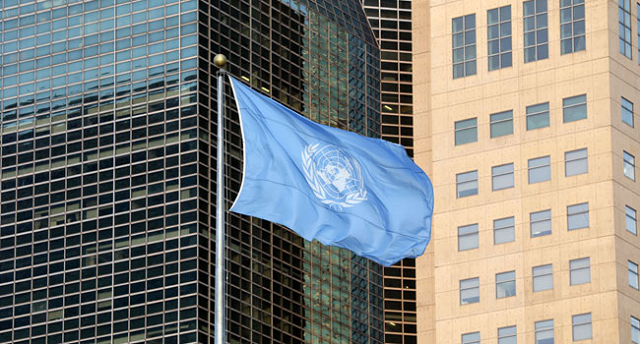As some countries begin to ease their lockdown restrictions, governments and employers must prepare workplaces and ensure people can return safely to prevent a resurgence of COVID-19, the UN said on Tuesday.
In a new study, the International Labour Organization stressed the importance of ensuring that workplaces meet strict occupational safety and health criteria before allowing people to return to their jobs, in order to minimise their exposure to the novel coronavirus.
“Without such controls, countries face the very real risk of a resurgence of the virus,” the United Nations agency said in a statement.
The ILO’s report comes as a number of European countries are beginning to gingerly scale back lockdown measures, and as authorities in China, which began loosening restrictions last month, fear a second COVID-19 wave could be looming.
The report stressed that by putting in place a range of measures, employers can minimise the risk of a second wave of contagion contracted at the workplace.
“The safety and health of our entire workforce is paramount,” ILO chief Guy Ryder said in the statement.
“In the face of an infectious disease outbreak, how we protect our workers now clearly dictates how safe our communities are, and how resilient our businesses will be, as this pandemic evolves,” he stressed.
“It is only by implementing occupational safety and health measures that we can protect the lives of workers, their families and the larger communities, ensure work continuity and economic survival.”
The pandemic, which has killed more than 200,000 people worldwide and infected nearly three million, has taken a devastating toll on economies and businesses around the globe.
After weeks with more than half of humanity told to stay home, many governments and employers are eager to get back to business.
But the ILO highlighted the dangers of allowing people to return to their workplaces, stressing the need to prepare properly.
Tuesday’s report stressed that risk control measures should be specially adapted to the needs of workers at the frontline of the pandemic, like health workers and those in food retail, but stressed that other workplaces also needed strategies to deal with the COVID-19 threat.
– ‘Respiratory etiquette’ –
Employers, it said, should map hazards and assess risks of contagion in relation to all work operations, and should continue to make such assessments after work resumes.
They should also adopt risk control measures adapted to each sector and each workplace, including for instance reducing physical interactions between workers, contractors, customers and visitors, improving ventilation, regularly cleaning surfaces, and providing protective gear like masks to any workers who need it.
Most importantly perhaps, according to ILO occupational safety and health expert Manal Azzi, is to remind people of the basic hygiene rules, like frequent hand-washing, covering sneezes and coughs, and keeping a proper physical distance.
“You still see people not respecting respiratory etiquette. So these are basic things that we need to be raising awareness on,” she told reporters in a virtual briefing.
She also suggested that companies could leave doors open “so people don’t have to touch handles.”
Employers should also provide mental health support for staff, ILO said.
Source: Channels TV












